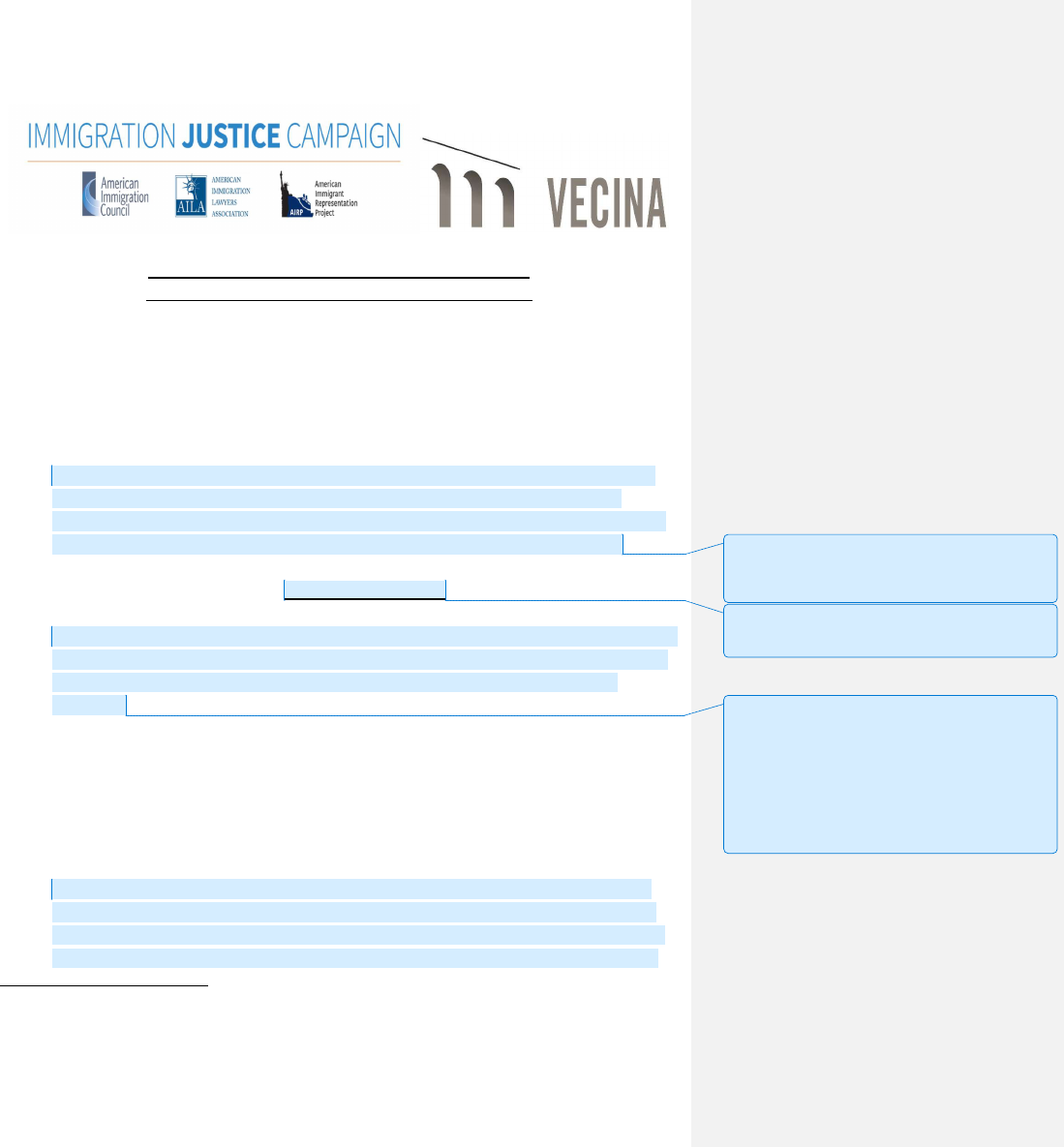
1
DECLARATION OF ABBAS MUSTAFA SARABI
IN SUPPORT OF APPLICATION FOR ASYLUM
1
1. My name is Abbas Mustafa Sarabi. I am a native and citizen of Afghanistan. I was born
in Bamyan, Afghanistan on December 17, 1982. I entered the United States on September
2, 2021 as a parolee. I have not left the United States since that time. I am filing this
declaration in support of my application for asylum.
2. I am applying for asylum because I am afraid that the Taliban will torture me and even
kill me if I am forced to return to Afghanistan. I believe they would do this to me
because of my work with a U.S. based non-profit, Human Rights Foundation, my wife’s
work to promote educational opportunities for girls, and the fact that I am Hazara.
Personal Background
3. I was born on December 17, 1982 in Bamyan, a town located in central Afghanistan. Like
everyone in my family, I am Hazara. I speak Dari, Pashto, and English. Dari is what my
family speaks and what I learned growing up. I learned English while studying at
university.
4. As a child, I lived in Bamyan with my parents, and two brothers, Ahmad and Darwood.
My father was a teacher and my mother looked after me and my brothers. My parents
always valued education and I went through both primary and secondary school in
Bamyan. Sadly, due to what felt like constant fighting and war in my town, my education
was regularly disrupted as a boy.
5. During the Afghan Civil War, the Bamiyan Valley was often a heavily contested area.
The beautiful, ancient caves in my town were used to store weaponry from the warring
factions. This was a scary time as a child, as I frequently heard guns firing. My parents
always told me and my brothers to stay clear of the caves. I remember having to spend
1
Abbas Mustafa Sarabi does not exist. This is a fictional story based on events that have transpired in Afghanistan.
The location names and general events mentioned are real, but the applicant and all personal details about him and
his family are fictional. Any similarities to any real persons are entirely coincidental.
Commented [JD1]: We recommend beginning the
declaration with a short statement summarizing the
basis for the claim and expressing the client’s fear of
persecution.
Commented [JD2]: Subheadings are a great way to
summarize the story and orient the reader, highlighting
the essential elements of the claim.
Commented [JD3]: It is helpful to include a
background section in the declaration that describes
your client’s life before the particular circumstances
that gave rise to your client’s asylum claim. This helps
to create a fuller picture of who the client is as an
individual and provides context for the rest of the story.
There is no need, however, to repeat all of the
biographical information included in the I-589 such as
parents and siblings names, educational and work
history, etc.
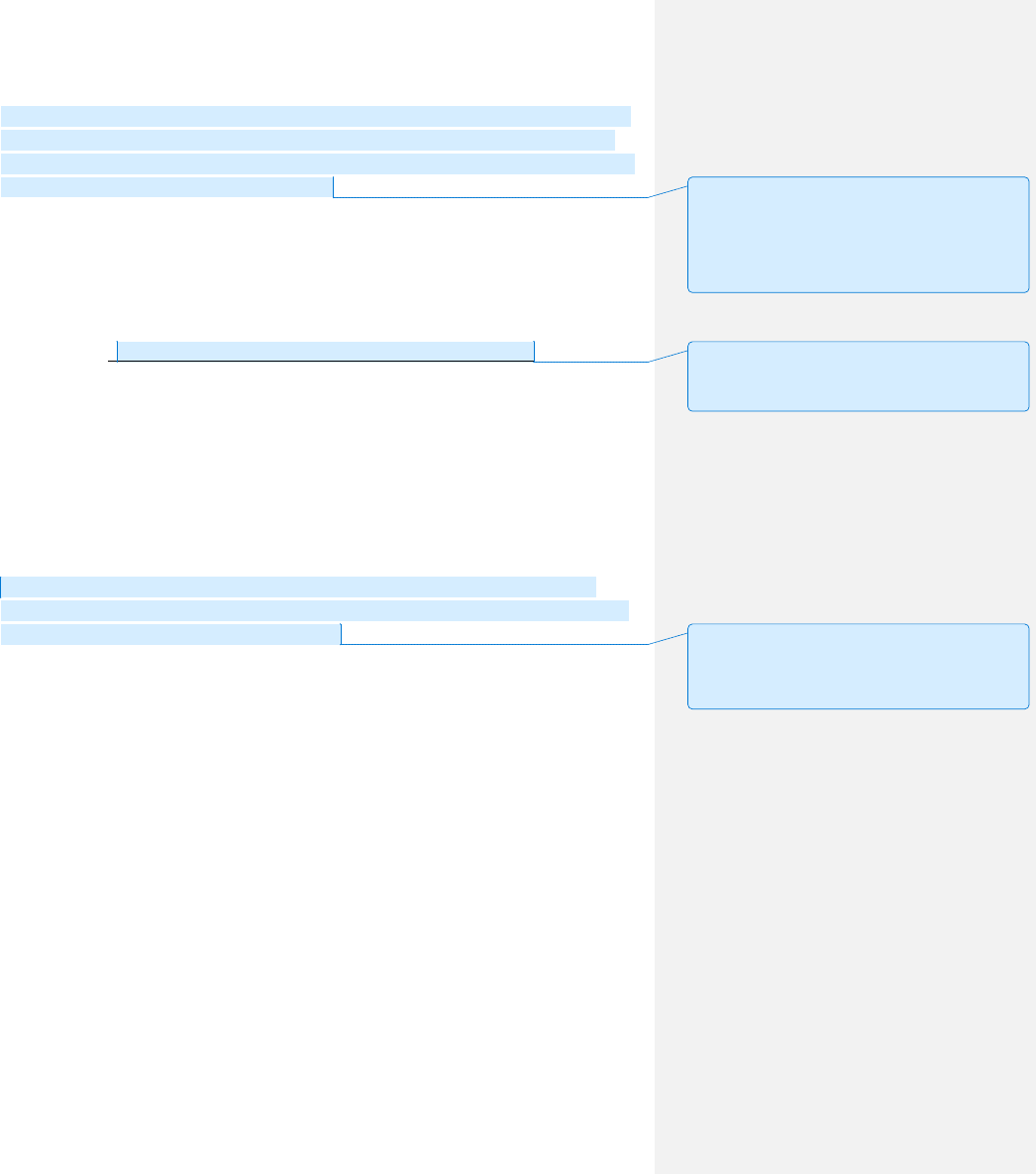
2
weeks at a time hiding indoors with my parents and brothers trying to avoid the violence
around us. During these times, my father would try to teach me and my brothers math
and reading. Because my father’s school was closed during the worst of the fighting, my
parents regularly struggled to make ends meet.
6. My parents never liked to discuss politics with me and my brothers when we were young.
I think they were worried about us being labeled as opposing any of the various regimes
that came in and out of power during my childhood. My parents just told us that they
wanted us to live our lives in peace.
1996: The Taliban Gains Power and Massacres Hazaras
7. In 1996, the Taliban gained control over Afghanistan. I was in secondary school at the
time. I was saddened when the girls’ schools in Bamyan shut down due to the Taliban’s
strict rules. I remember being terrified of the Taliban. Like most other Hazara, my
family and I are Shia Muslims. The Taliban, however, are Sunni Muslim and
immediately began speaking out against Hazaras when they came to power. They called
us infidels and threatened they would target Hazaras with violence. My family started
limiting our time out of the house, leaving only to go to school or the market.
8. In August 1998, our worst fears came true when the Taliban murdered thousands of
Hazara in a town called Mazara-e-Sharif. The following month, the Taliban rounded up
and executed hundreds of Hazaras in Bamiyan. My family had been visiting my
grandparents in the countryside on the day of the massacre, so we were spared. However,
three of my classmates and their fathers were killed. I was terrified that my family would
be next. We continued to try to stay close to home and keep our political beliefs to
ourselves.
9. I graduated from high school in August 2000 and desperately wanted to go to university.
However, due to the disruptions to my father’s work due to years of war, I did not have
enough money to pay the tuition. Instead, I took a job working on a local farm and began
to save up money.
10. In March 2001, my town made international news when the Taliban blew up the famous
Bamiyan Budha statutes that had been created in the 6
th
Century. I remembered being
very upset at the time. Even though I am Muslim, I always appreciated the beautiful
statues and they were a famous attraction in our town.
Commented [JD4]: If your client is old enough to
remember the Afghan Civil War and the prior period of
Taliban rule, it is a good idea to describe what the
experience was like for them. If they were too young to
remember themselves, it may be useful to include a
paragraph about what they heard from their families
and/or communities.
Commented [JD5]:
After the background section of the
declaration, it is best for your client to tell her/his story
in chronological order, touching on the most salient
events.
Commented [JD6]: You should only include historical
events that the client personally remembers, not facts
that you or the client have learned by doing country
conditions research. Here, the fictitious client
personally remembers these massacres.
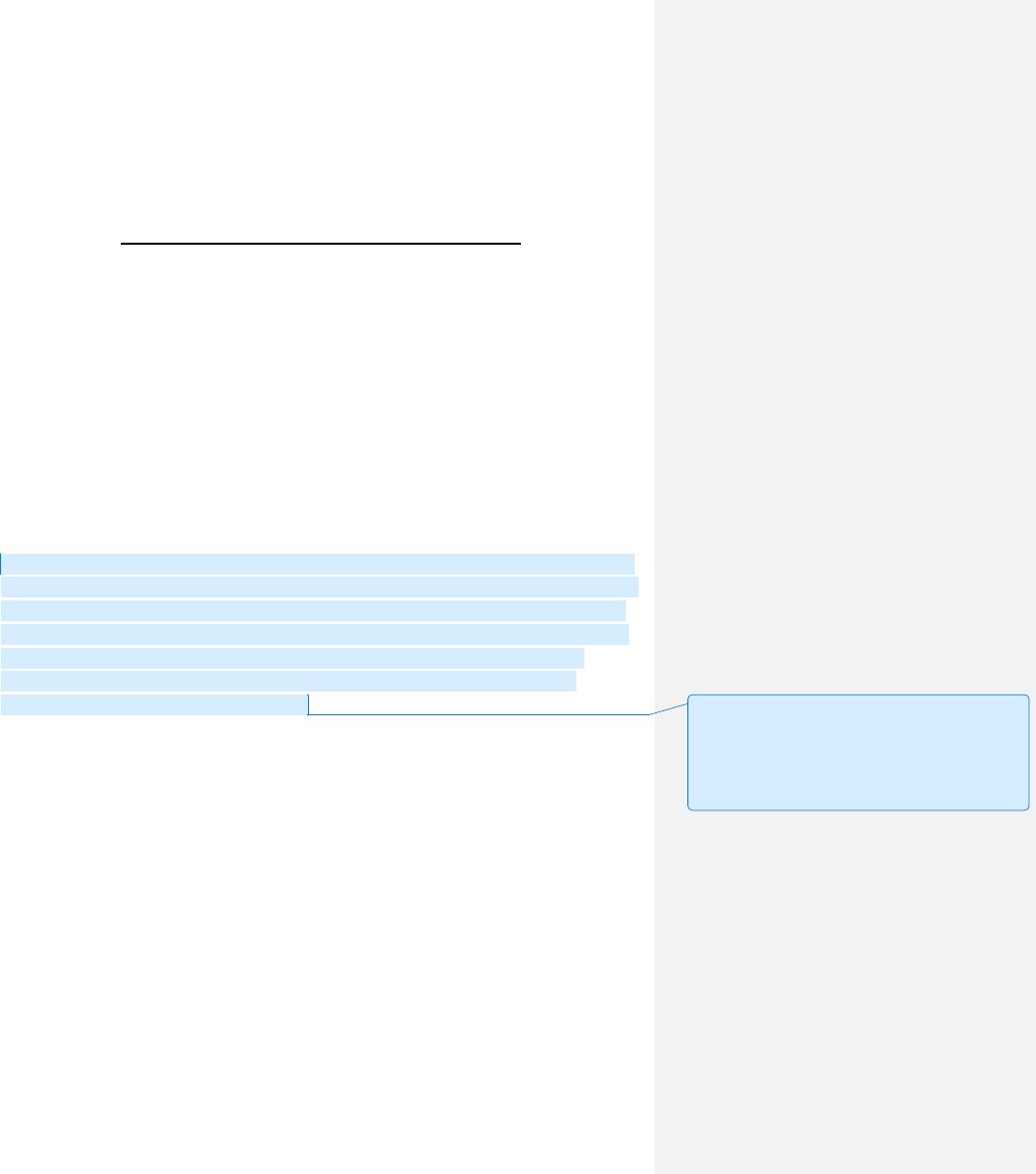
3
11. Following the attacks on the United States on September 11, 2001, the United States
invaded Afghanistan. Life came to a standstill for me and my family and we hid out at
home. We were incredibly happy when the Taliban was defeated in November 2001, and
hoped there would finally be peace in Afghanistan.
My Work at a U.S. NGO, Human Rights Foundation
12. By April 2005, my family had finally saved enough money for me to go to university. I
enrolled at the University of Kabul, where I studied journalism and English. My studies
gave me a good exposure to both local and world affairs as well as current events. I
joined the student newspaper and found myself drawn to writing stories about
marginalized groups in Afghanistan.
13. While studying in Kabul, I got to know my now wife, Maryam. Maryam also grew up in
Bamyan. Her father was a teacher like mine and our families saw each other at social
gatherings, but did not know each other well. Being in a new city, I took comfort
spending time with Maryam, who was studying history and English at the University of
Kabul. We got married during our second year of university on October 14, 2006.
14. Even though the Taliban had been defeated by the time we went to university, there were
not many women at the University of Kabul. Maryam had been fortunate that her parents
valued educating girls and her father was able to provide an education to her even when
the Taliban shut down girls’ schools. Most girls in Afghanistan were not able to receive
any education during the time of Taliban rule. Recognizing the value of women’s
education, Maryam and some other women at the University of Kabul formed an
organization that promoted educating girls.
15. After Maryam and I graduated from university in 2008, we stayed in Kabul. Maryam got
a job working as an interpreter at a local hospital and I started working as a journalist for
the Afghanistan Times. For several years, I covered local news and entertainment in
Kabul. In 2011, after Maryam and I had our son Ahmad, I decided that I wanted to do
work that made more of an impact. I left the Afghanistan Times to work for Etilaat e
Roz, another Afghan newspaper, where I became an investigative journalist. My articles
focused on government corruption. Although Etilaat e Roz was a small paper, our
investigations regularly created headlines and we were known for breaking big stories. In
my investigations I saw over and over that ethnic minorities were being discriminated
against by the Afghan government.
16. In 2015, I decided that I wanted to do more than just report on corruption and human
rights abuses. I wanted to advocate for the people affected by these problems. I left my
Commented [JD7]: It would be best for this fictional
client’s wife, Maryam, to also submit a declaration in
this case since she was a witness to and recipient of
threats from the Taliban. She also could have her own
asylum claim based on the work she did in women’s
education. As the lawyer, you should look out for any
discrepancies between the couple’s accounts.
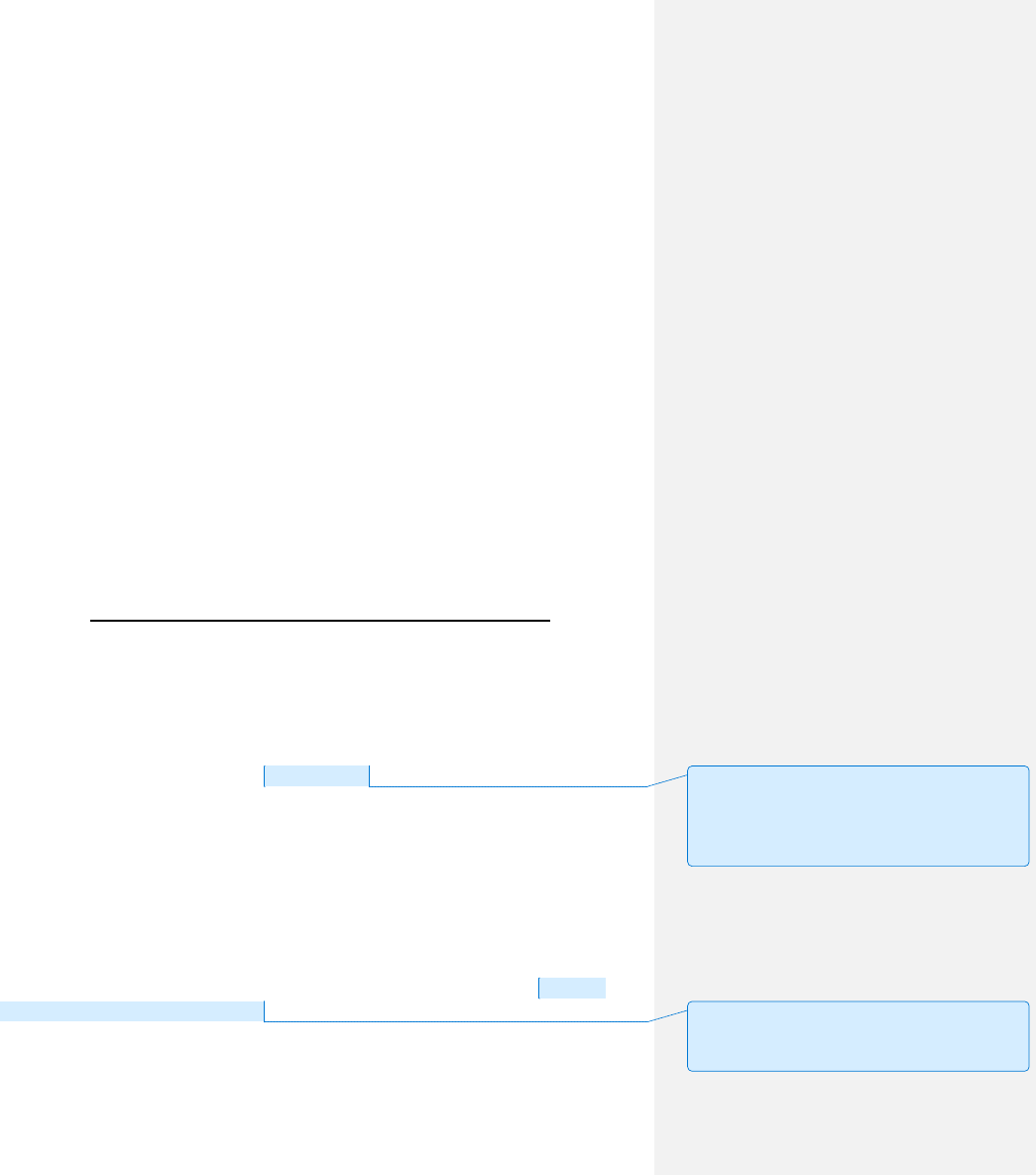
4
career in journalism to work for the Human Rights Foundation, a large international
human rights organization. I became a researcher and traveled the country researching
human rights abuses.
17. The majority of my work at Human Rights Foundation focused on the everyday
experiences of people living in Taliban dominated districts. I researched how the Taliban
restricted education, access to information and media, and freedom of movement by
talking to people living in these regions. When non-Afghans working for the Human
Rights Foundation travelled with me, I also acted as an interpreter.
18. From 2017-2019, I conducted nearly one hundred in-person interviews with Taliban
officials, commanders, and fighters, as well as teachers, doctors, elders, students and
other residents in Helmand, Kunduz, and Wardak provinces, areas that the Taliban
controlled. My interviews became the basis for an in-depth 2019 report by Human
Rights Foundation. The report showed that residents in Taliban-controlled areas lacked
the ability to criticize or question the Taliban without facing serious human rights
violations. Despite the Taliban’s public statements about beginning to accept girls’
education, very few local Taliban authorities permitted girls to attend school past puberty
and some did not allow them to go to school at all. The report also highlighted the severe
limits on freedom of expression and media in the area.
The Taliban Threatens Me and My Family Due to My Work
19. I was very proud of my research and contributions to the 2019 Human Rights Foundation
report on the Taliban. I felt like I was able to give a voice to the people I interviewed and
wanted the world to know what was happening in Afghanistan. However, I quickly
realized that my work had put me and my family in grave danger.
20. The report came out in late 2019. In February 2020, I received an anonymous letter at
my Human Rights Foundation office in Kabul. The letter accused me of being an infidel
and a traitor for working at a European led NGO. The letter specifically mentioned the
2019 report and said I was spreading lies and misinformation and demanded that I quit
my job immediately. At first, I didn’t think too much of the letter. Having worked as an
investigative journalist, I was accustomed to some people disliking my work. However,
additional letters starting coming to me not only at my office, but my home as well. The
letters said that I had made a serious mistake in criticizing the Taliban and that my family
would pay a dear price for my actions. In addition to the letters, I also started getting text
messages multiple times a week from unknown numbers stating things like “infidel,”
“traitor,” and “your family will pay.” Some of the letters and text messages referred to
Commented [JD8]: If your client doesn’t remember
exact dates, it is fine to use month + year, or even an
estimated timeframe (i.e. “sometime in early 2020”).
You are much better off using an estimate than locking
your client into a date they don’t remember with 100
percent certainty.
Commented [JD9]: When your client has specific
memories of what his/her persecutors said, the quotes
can be helpful to include, especially if they indicate
what the
ir motives might be.
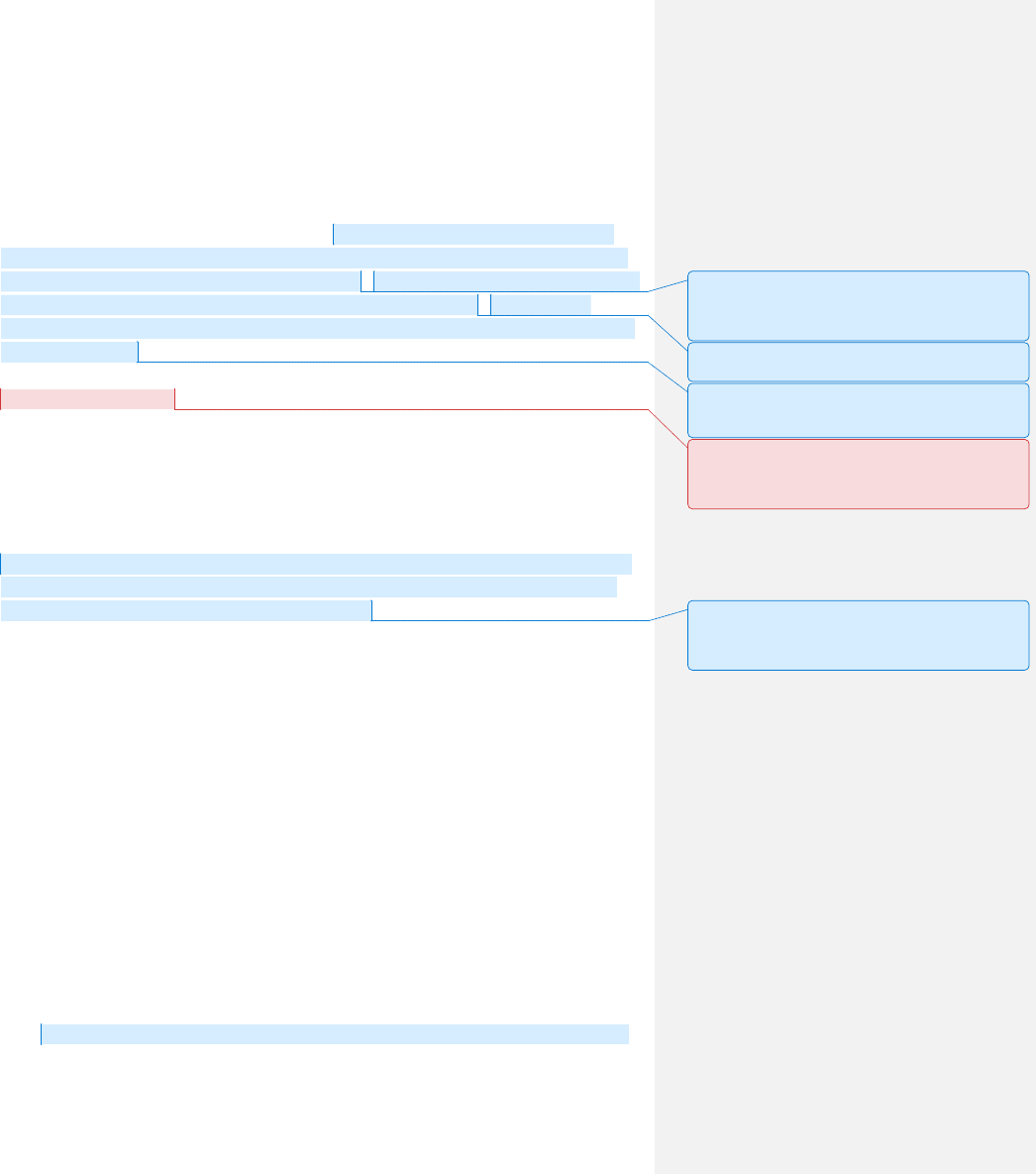
5
the interviews I had conducted with Taliban officials and commanders and said I
betrayed their trust.
21. Beginning in July 2020, my wife also started receiving threatening text messages. Some
said that she would pay for her husband’s mistakes. Others said that I should quit my
work if I knew what was good for my family. I knew that all of the text messages and
letters were coming from the Taliban since they were directly referencing the report and
the interviews I had conducted during my research. For the next several months, my wife
and I each received threatening text messages every couple of days. We were very
scared, but believed strongly in the work I had done and continued to do with the Human
Rights Foundation.
22. Around November 2020, I noticed that I was being followed in my car several times
driving to and from work. Unmarked cars would quickly switch lanes behind me. Then,
one day, my wife noticed two men she had never seen following her and Ahmad as she
walked our son to school. After she dropped him off, the men confronted her. They said
she was a Hazara infidel and that she had better stop me from spreading lies or else
Ahmad may not be there when she came to pick him up at school one day.
23. Maryam was terrified. It felt like a line had been crossed when the men followed her and
Ahmad to school and we were very scared for Ahmad’s safety. Maryam and I felt like
we needed some time away to focus on my family. I spoke to my boss at work and she
completely understood. In December 2020, my wife and I decided to take some time
away from Kabul and went to live with our families in Bamyan in the hopes that things
would calm down. We changed our phone numbers and enrolled Ahmad in a school
there temporarily. Maryam took a job working at a girls’ school in Bamyan.
24. For a while, it felt like our plan had worked. The text messages stopped, we didn’t notice
anyone following us, and we didn’t receive any letters. By February 2021, however, it
was clear that the Taliban knew we were in Bamyan. Once again, Maryam and I started
receiving threatening text messages. Maryam also received a hand-written letter at her
school that said “we know where you are” and once again alluded to my work and called
me an infidel. We tried to continue on with our lives, but regularly receiving these
messages was scary. Maryam’s school also became upset after several more letters
arrived there for her from the Taliban. They asked Maryam to stop teaching.
25. In May 2021, we decided to move back to Kabul. By this point, we were receiving 3-4
text messages a week. With the news that the United States was fully withdrawing from
Afghanistan, we thought we’d be safer in Kabul since it wasn’t Taliban controlled at the
time. We enrolled Ahmad in a different school and moved in with my cousin rather than
Commented [JD10]: If your client received anonymous
threats or in-person threats from people who did not
identify themselves, s/he should explain who s/he
thinks the person or group was and why.
Commented [JD11]: If your client received threats, it is
important to desc
ribe the frequency of the threats.
Commented [JD12]: It can be very helpful to your
client’s credibility if s/he explains why s/he continued
their work or political activities in the face of danger.
Commented [JG13]: Again, it is best not to lock your
client into definite dates if s/he is not 100% certain.
Phrases like "around x date/month" can be a good way
to do that.
Commented [JD14]: Since asylum is a fear-based
standard, it is very important for your client to describe
what s/he was afraid of and why, even if it may seem
obvious.

6
returning to our own house. I started working at Human Rights Foundation again, but
tried hard to take additional security measures, like using different travel routes to work
and changing my work hours each day to make it harder for people to know where I was.
August 2021: My Family and I Go into Hiding and My Cousin is Attacked
26. The Taliban continued to make threats against me, Maryam, and Ahmad once we
returned to Kabul. In early June, we received text messages stating that they knew we
were in Kabul. Meanwhile, all of my European colleagues at the Human Rights
Foundation began leaving the country. I was sad to see them go as it was yet another
signal to me that Taliban control was imminent. Maryam and I prayed for our country,
while looking on in horror as the Taliban took control of greater and greater portions of
Afghanistan.
27. In July, the Human Rights Foundation shut down our Kabul office. While this was
upsetting, I understood the decision. Our work was becoming increasingly dangerous and
my colleagues were also receiving threats from the Taliban. Rather than researching in
the field, I started reporting to Human Rights Foundation about what I was seeing each
day right in Kabul. Terribly, there was an increasing trend of gunmen targeting female
students, journalists, and Hazaras. Making matters worse, the Afghan government was
doing very little to investigate these atrocities, even in government-controlled areas like
Kabul. Afghanistan was becoming less and less safe each day.
28. In early August 2021, my next door neighbor, also a Hazara who had worked with an
international NGO, was murdered while coming home from the market. Maryam and I
decided that we needed to go into hiding immediately. We started moving around every
couple of days, staying with various friends and relatives. We stayed indoors all day in
an attempt to avoid detection. I was constantly in touch with the Human Rights
Foundation and was trying to figure a way to get me, Maryam, and Ahmad out of the
country.
29. In mid-August, 2021, several heavily armed Taliban members showed up at my cousin’s
house where I had been living prior to going in hiding. They asked him where I was.
When my cousin said that he did not know, they began to beat him with the butt of their
guns. In between strikes, they would ask him over and over again where I was. When he
couldn’t answer them, they went through the house turning over furniture, throwing
around papers, and breaking glassware and lamps. They shattered a large glass bowl on
my cousin’s head. Before finally leaving, the men told my cousin to deliver the message
to me that my time would be coming soon. I think they meant that they would kill me.
Commented [JD15]: If your client was able to avoid
physical harm by taking safety precautions, it is very
important to describe those precautions in great detail.
Commented [JD16]: It is important to explain why at a
certain point an asylum seeker decided to leave their
country
and why.
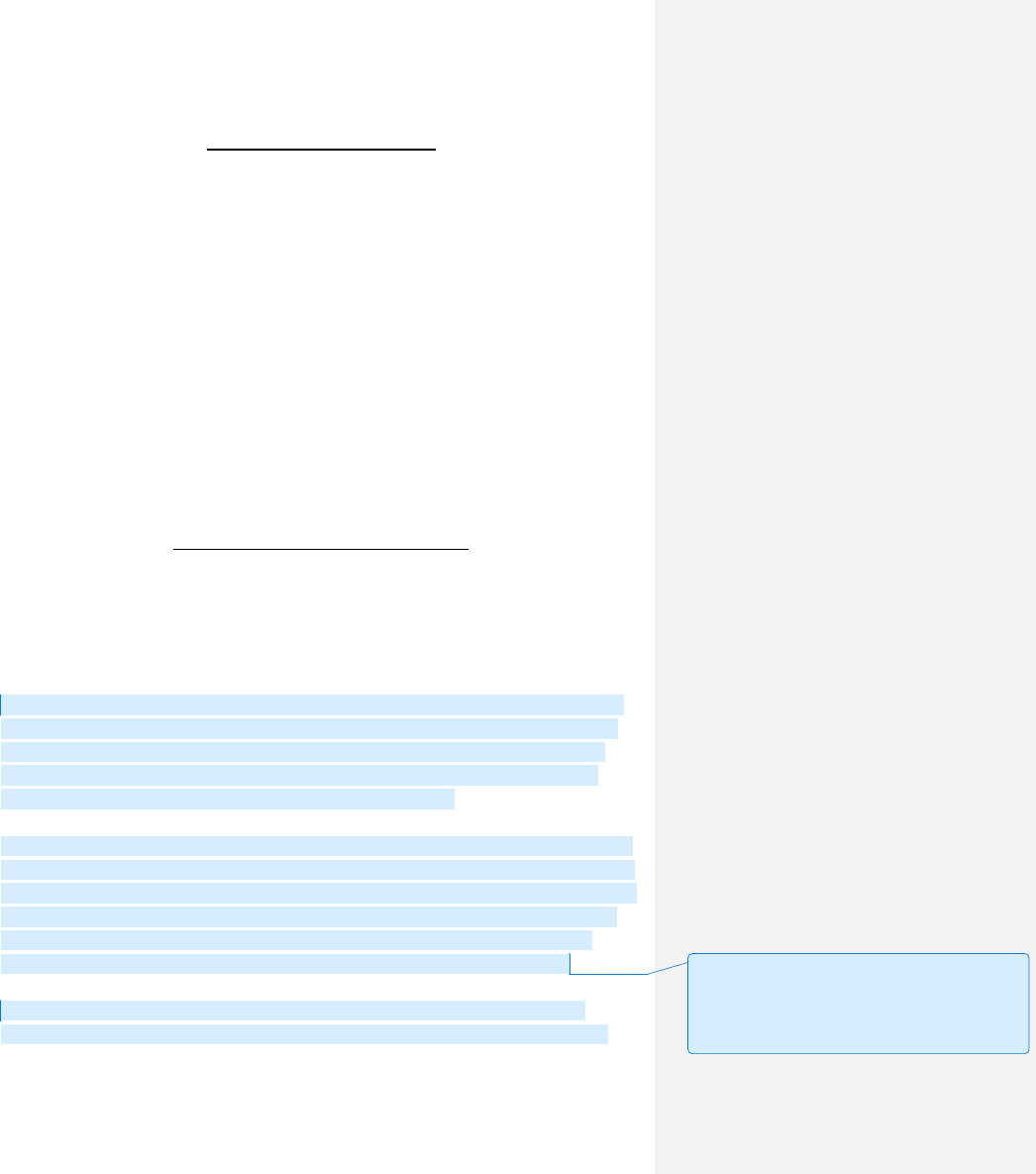
7
Our Escape from Afghanistan
30. I was devastated when I learned what happened to my cousin. I felt very guilty that he
had suffered so much on my account. Two days later, on August 15, 2021, Kabul fell to
Taliban control. I learned from my colleagues at Human Rights Foundation, that
America was evacuating Afghans at risk from the airport, so Maryam, Ahmad and I made
our way to the Kabul Airport on August 25, 2021. The scene was chaotic and dangerous.
After days of camping out next to the airport in crowded and unsanitary conditions, we
were finally permitted to board a plane. We landed first in Qatar, then in Germany, and
then finally we were able to fly to the United States.
31. We finally arrived at Dulles Airport on September 2, 2021. On the one hand, I felt an
enormous sense of relief when the plane landed. After years of fearing the Taliban, I felt
like Maryam, Ahmad, and I were finally free from them. At the same time, I still felt an
enormous sense of fear for all of my friends, former colleagues, and family members
back home.
The Taliban Continues to Look for Me
32. After arriving in the United States, Maryam, Ahmad, and I spent two months at the Fort
Pickett military base in Blackstone, Virginia before settling in Richmond, VA. Ahmad is
now enrolled in school and is learning English. Maryam and I hope to obtain jobs
working in the human rights field or education once we receive our work permits.
33. While we are looking forward to our new life in the U.S., our thoughts are still with our
friends and families back in Afghanistan. In December 2021, I learned that my former
supervisor at Human Rights Foundation was murdered by the Taliban. She had been
living in hiding since the Taliban seized control over Kabul in August. The Taliban
found her at her parents’ house in the country and executed her.
34. Around the same time that I learned about my former supervisor’s murder, I also learned
that Taliban operatives had been to my parents’ house in Bamyan. They asked my father
where I was. When he said he didn’t know, they demanded that he find out and said they
would be back. They told my father that if he didn’t have answers for them when they
returned, my father would be killed. Living with the knowledge that I have put my
father’s life in danger fills me with pain every day. I fear for his safety and life.
35. Maryam, Ahmad, and I can not return to Afghanistan. If we did, I believe that the
Taliban would immediately arrest, detain, torture, and kill me and Maryam due to the
Commented [JD17]: It is helpful to include information
about what has happened to your client’s friends,
family, and colleagues since your client has arrived in
the U.S. If anyone has been harmed or threatened, the
declaration should include those details. Please also
note if the persecutor
is still looking for your client.

8
work I performed for the Human Rights Foundation, Maryam’s former work in girls’
education, and the fact that we are Hazara. I fear they would kill my son too because of
his association with us and the fact that he is Hazara. The fact that American evacuated
us from Afghanistan makes things even more dangerous for us. The Taliban undoubtedly
views us as political enemies because I have worked for international organizations and
American helped us escape.
36. I respectfully request that you grant me and my family asylum.
___________________
Abbas Mustafa Sarabi Date:
Commented [JD18]: It is a good practice to include a
statement at the end of the declaration explaining why
the asylum seeker is afraid to return home.
